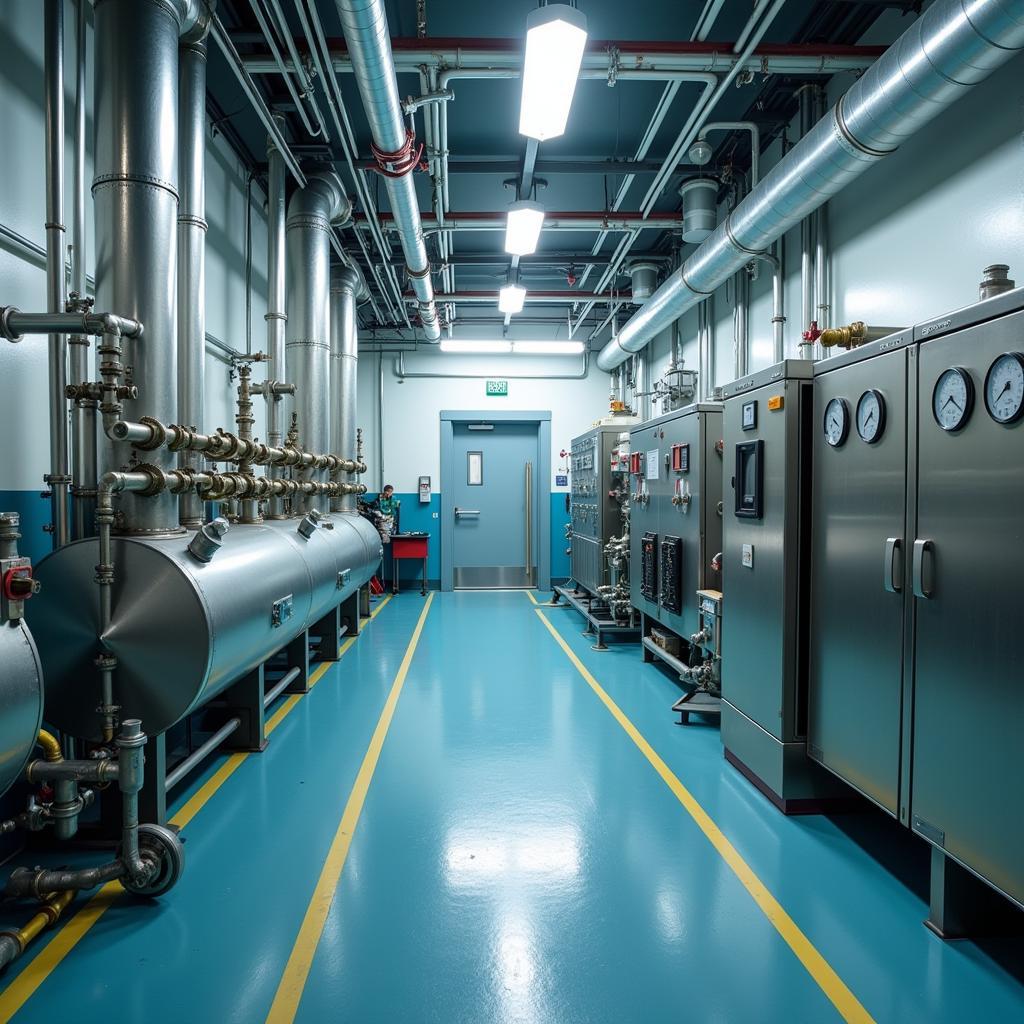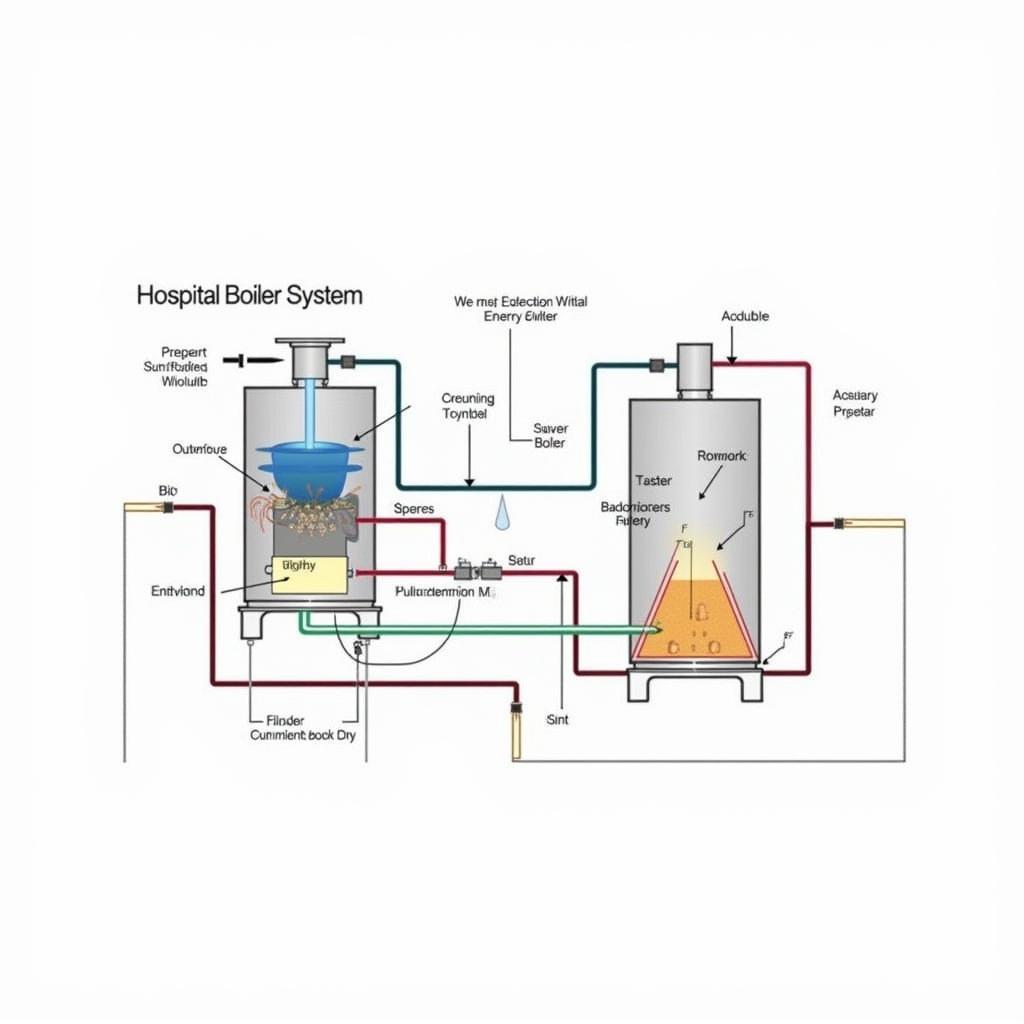The Hospital Boiler Room may not be the first thing that comes to mind when you think of San Jose Hospital, but it plays a vital role in maintaining the comfort and safety of our patients and staff. This often-unseen space houses the hospital mechanical systems responsible for heating, cooling, and hot water throughout our facility.
The Importance of a Reliable Boiler Room in a Hospital Setting
Hospitals have unique needs when it comes to their mechanical systems. Unlike other buildings, a hospital needs to operate 24/7, 365 days a year, with no room for downtime.
- Consistent Temperature Control: Maintaining a stable temperature is crucial for patient comfort and the integrity of sensitive medical equipment.
- Reliable Hot Water Supply: From sterilization to hygiene, a constant supply of hot water is essential for various hospital procedures.
- Emergency Preparedness: In the event of a power outage or natural disaster, the boiler room must continue to function to ensure the safety and well-being of everyone inside.
 Modern Hospital Boiler Room Interior
Modern Hospital Boiler Room Interior
Key Components of a Hospital Boiler Room
A hospital boiler room is a complex network of interconnected systems working together seamlessly. Here are some of the key components you might find:
- Boilers: The heart of the system, boilers, generate heat by burning fuel (natural gas, oil, or propane) or using electricity to heat water or create steam.
- Burners: These components mix fuel and air to create combustion within the boiler.
- Pumps: Pumps circulate water or steam throughout the hospital to provide heating and hot water.
- Heat Exchangers: These devices transfer heat from one medium to another, for example, from the boiler water to the building’s heating system.
- Control Systems: Sophisticated control systems monitor and regulate all aspects of the boiler room operation, ensuring efficiency and safety.
Choosing the Right Boiler System for Your Hospital
Selecting the appropriate boiler system is a critical decision for any hospital. Factors to consider include:
- Size and Capacity: The system must be appropriately sized to meet the hospital’s heating and hot water demands, considering current needs and future expansion plans.
- Energy Efficiency: Opting for high-efficiency boilers for hospitals reduces operational costs and minimizes the facility’s environmental impact.
- Fuel Type: The choice of fuel (natural gas, oil, electricity) depends on availability, cost, and environmental regulations.
- Emissions Control: Hospitals must comply with strict environmental regulations regarding emissions from their boiler systems.
 Schematic Diagram of a Hospital Boiler System
Schematic Diagram of a Hospital Boiler System
“Investing in a reliable and efficient boiler system is not just about infrastructure; it’s about investing in the well-being of our patients and staff.” – Dr. Emily Carter, Chief of Facilities, San Jose Hospital.
Maintaining Your Hospital’s Boiler Room
Regular maintenance is essential to ensure the longevity, efficiency, and safety of your hospital’s boiler room:
- Preventative Maintenance: Scheduled inspections, cleaning, and component replacement help identify potential issues before they escalate.
- Repairs: Address any malfunctions or breakdowns promptly to minimize downtime and prevent further damage.
- Upgrades: Regularly evaluate the system for efficiency improvements or necessary upgrades to meet changing demands.
Conclusion
While often out of sight, the hospital boiler room plays a vital role in maintaining a safe and comfortable environment at San Jose Hospital. By understanding the importance of this critical system and investing in its reliability and efficiency, we reaffirm our commitment to providing the highest quality care to our patients.